Who is here? 1 guest(s)
|
unknown genus -> (Di)dysmachus
|
|
| treebeard |
Posted on 06-07-2023 21:39
|
|
Member Location: Posts: 601 Joined: 13.08.13 |
This species looks very extraordinarily in my region. It should be Asilinae, but sits quite differently - in the beginning I thought it was not a robberfly. Can anybody help to identify it? Slovakia, Banská Bystrica, mountain meadow, 650 m.a.s.l., 6 July 2023. Thank you in advance Matej Edited by treebeard on 09-07-2023 06:48 |
|
|
|
| treebeard |
Posted on 06-07-2023 21:41
|
|
Member Location: Posts: 601 Joined: 13.08.13 |
a dorsal view |
|
|
|
| treebeard |
Posted on 06-07-2023 21:43
|
|
Member Location: Posts: 601 Joined: 13.08.13 |
it sat in this position at least twice |
|
|
|
| treebeard |
Posted on 06-07-2023 21:44
|
|
Member Location: Posts: 601 Joined: 13.08.13 |
a detail of head and thorax |
|
|
|
| treebeard |
Posted on 06-07-2023 21:46
|
|
Member Location: Posts: 601 Joined: 13.08.13 |
and ovipositor, yellow bristles on tergites are also visible |
|
|
|
| JWV |
Posted on 07-07-2023 16:43
|
|
Member Location: Posts: 100 Joined: 16.12.22 |
Hi Matej, Check Didysmachus picipes female, the ovipositor is quite remarkable. Best, Jonne |
|
|
|
| treebeard |
Posted on 08-07-2023 06:01
|
|
Member Location: Posts: 601 Joined: 13.08.13 |
Thank you, Jonne Yes, you are probably close. I should feel ashamed as Didysmachus picipes is the most common robberfly species in my region. I let myself to be misled byt the overall impression. However, there is one difference between D. picipes and this specimen - conspicuous yellow bristles on the front tibia. As for ovipositor, there are black bristles on the ventral side, which I cannot see in my pictures f D. picipes females. Maybe some Dysmachus? There are eleven species of them in the Slovak checklist. Edited by treebeard on 08-07-2023 06:09 |
|
|
|
| Jump to Forum: |


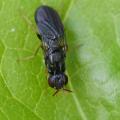



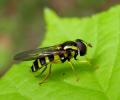
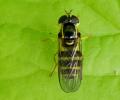

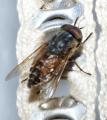
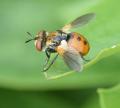


 but don't see the image in the post.
but don't see the image in the post.
